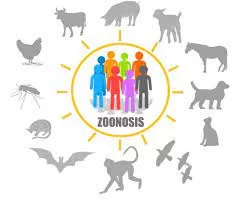Getting adequate sleep is crucial for maintaining basic health processes, especially for the development of teenagers and young adults. A recent study published in the journal Sleep Health has uncovered a concerning link between poor sleep and symptoms of muscle dysmorphia, a trend increasingly observed among young individuals.
The study, led by Kyle T Ganson, PhD, MSW, an assistant professor at the University of Toronto’s Factor-Inwentash Faculty of Social Work, involved over 900 adolescents and young adults. Over a two-week period, participants who reported experiencing more symptoms of muscle dysmorphia also reported getting fewer hours of sleep and facing difficulties falling or staying asleep.
According to Dr. Ganson, “Poor sleep can have significant negative impacts for adolescents and young adults, including increased negative mental health symptoms.” He further emphasized the concern that poor sleep among those experiencing muscle dysmorphia symptoms could worsen their functional and social impairment, potentially leading to increased suicidal thoughts and behaviors.
Previous research has highlighted the widespread issue of insufficient sleep among adolescents and young adults, who often fall short of the recommended 7 to 10 hours of sleep per night. Additionally, numerous studies have linked poor sleep to mental health diagnoses, including symptoms of anxiety, depression, and psychosis.
The recent study by Dr. Ganson and his colleagues is the first to explore the relationship between sleep and muscle dysmorphia. The authors suggest that the mechanisms connecting greater muscle dysmorphia symptomatology and poor sleep may be complex. Factors such as intolerance for one’s appearance, obsessive thinking, anxiety related to body image and muscularity, and displacement of sleep by physical activity could all contribute to impaired sleep in individuals with muscle dysmorphia.
Dr. Ganson highlighted the potential role of dietary supplements and anabolic-androgenic steroids in disrupting sleep patterns among those with muscle dysmorphia. Many individuals experiencing muscle dysmorphia symptoms may use supplements marketed for enhancing workouts and muscle mass, which often contain high levels of caffeine or other stimulants known to impact sleep negatively. Additionally, the use of anabolic-androgenic steroids, common among people with muscle dysmorphia, has been shown to have adverse effects on sleep.
The findings of this study underscore the importance of addressing sleep quality in adolescents and young adults, particularly those exhibiting symptoms of muscle dysmorphia. Enhancing sleep hygiene and addressing underlying issues contributing to poor sleep may play a crucial role in promoting overall well-being and mental health in this population.











